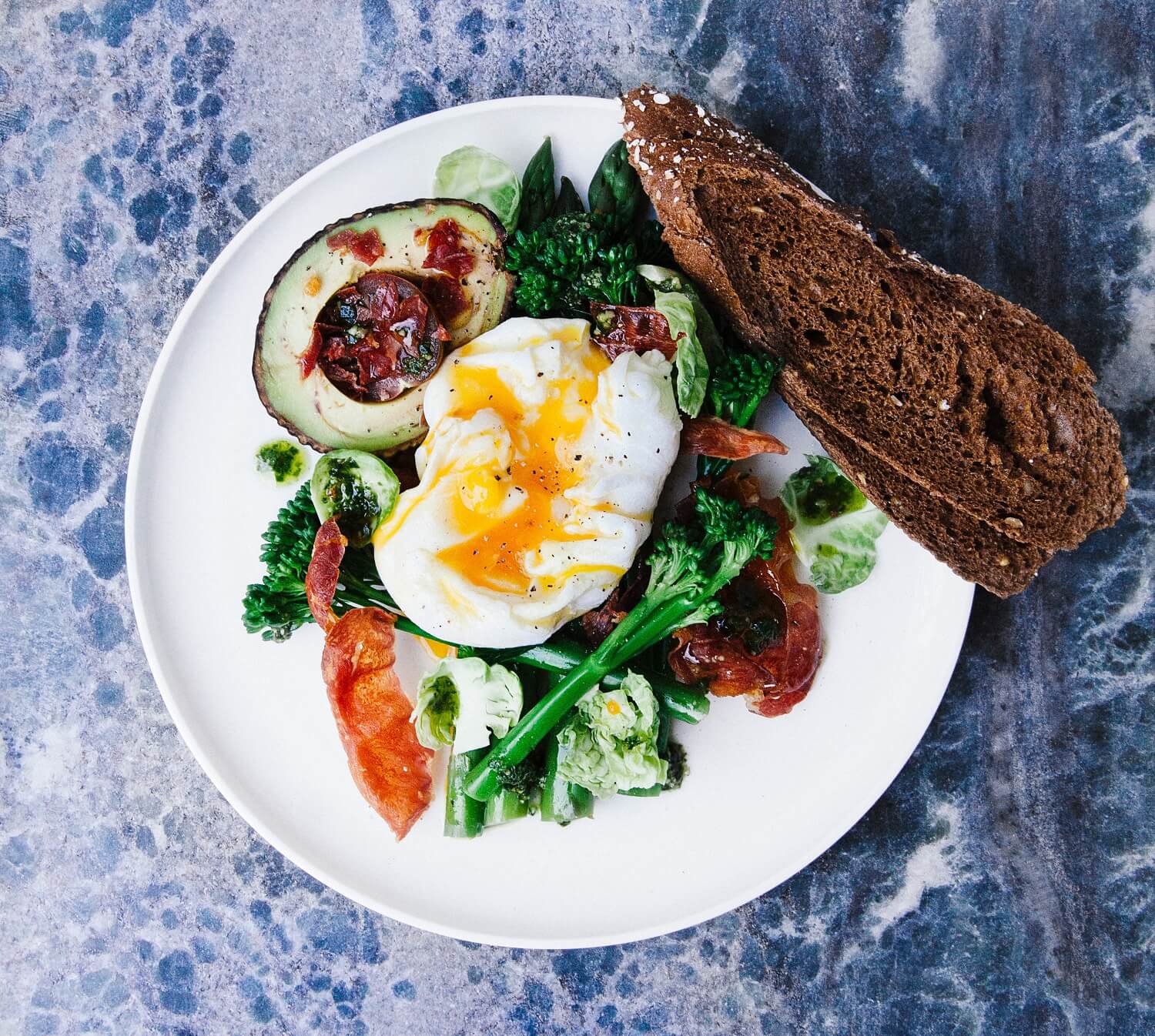5 Easy Ways Midlifers Can Reduce Belly Fat
What’s causing your weight gain around the middle? And 5 ways to reduce it.
I was doing just fine until the age of 45 when, in the space of a year, I put on 10lb and most of it belly fat! It felt like I'd shrunk the waistbands of all my clothes and sitting down was starting to feel uncomfortable. Elasticated trousers were calling me!
Belly fat can make you feel heavy, lethargic and down about yourself and can feel uncomfortable. But, more importantly, belly fat has greater health implications than fat around your bum or thighs because the additional fat may not just be under the skin but around your internal organs too. Fat around the middle increases your risk of heart disease, stroke and type 2 diabetes; the risk of these conditions increases anyway with age so you don’t need to be increasing your risks further by carrying extra weight around the middle.
Belly fat can be tough to shift but it’s worth the effort, not only for your self-confidence and feeling better about yourself, but also for your long term health.
If you just want to know what to do about it, head straight to the end of this blog and take some positive action. Or get yourself signed up to my 5 day cut the afternoon cravings challenge which starts in just over a weeks time. However, knowing what’s causing your belly fat might just help you understand why you need to do certain things rather than just going through the motions or heading off to the next quick-fix diet. Let’s jump in and find out more …
What’s causing my belly fat?
For many midlifers (men and women), hormonal imbalance is a root cause of belly fat. Hormonal balance is complex and interconnected but for the purpose of this blog, I’ve just focussed on 3 key hormones.
Hormonal imbalance can be due to all sorts of reasons – stress, lack of sleep, the foods you’re eating, your digestive system and age. But the good news is that what you eat can directly affect your hormones, help restore balance and in turn help target your belly fat.
Belly fat is often due to cortisol levels being too high and this is particularly important because cortisol is the controlling hormone and will affect the balance of the other hormones in your body. Cortisol is affected by your stress levels, lack of sleep and imbalances in your blood sugar levels. Read my blog post about reducing stress here.
Insulin is another key hormone affected by excess sugar. Imbalances in blood sugar levels disrupt insulin which in turn affects oestrogen and testosterone levels. Insulin resistance makes it difficult for you to process sugars and can result in fat being stored, particularly around the belly.
If thyroid levels are too low it can cause sluggish metabolism and weight gain. This might be due to several reasons, including the above hormonal imbalance issues, prolonged stress and sensitivities to certain foods, particularly gluten.
What can I do to reduce belly fat?
The number 1 thing you can do is balance your blood sugar levels which will help your cortisol and insulin levels.
Tip #1 : Reduce your refined sugars
They raise blood sugar levels, increase insulin and negatively impact your hormone balance. Get rid of the obviously sugary foods but also soft drinks, white flour products and cut down on the alcohol (it’s just a sugar). Avoid artificial sweeteners too, they’re no better than sugar.
Why not sign up for my 5 day challenge to help you reduce those sugary, carb cravings which can have such an impact on your weight? It’s absolutely FREE!
Tip # 2: Reduce your processed foods (and hidden sugars)
Processed foods stress the liver and digestive system which are important for processing hormones (see below). Plus processed foods tend to be full of hidden sugars e.g. yoghurts, cereals, sauces, fat free products, crackers, juices, soups and flavoured crisps. Read the food labels or even better, try to get rid of processed foods and focus on nutrient dense, fresh ingredients.
Tip # 3: Choose your (complex) carbs
Most carbs are processed and refined, for example, breads and pasta which will quickly spike your blood sugars after eating. Help balance your blood sugar levels by focussing on small portions of complex carbs, such as sweet potato. Be careful with too many grains as they can disrupt sugar levels and you may want to reduce your gluten to see if you feel better for it, or not.
Tip # 4: Factor in some fats
Reduce your saturated fats and remember that the more processed or heat treated a fat is, the harder it is for your body to process it; go for avocado, nuts, seeds and cold pressed oils.
Tip # 5: Pick your protein
Ordinary meat and dairy are not great for your hormones because of the use of growth enhancers and hormones used in the industry. These can negatively affect your hormonal balance. As much as possible try to choose organic, free range and grass fed protein, and consume in moderation. Or choose alternative protein like nuts, seeds, beans, lentils and tofu.
And don’t forget these guys…
Your liver
You need to look after your liver. One of its jobs is to break down excess hormones and move them into the digestive system for excretion. Liver function will decrease with age and if it’s not functioning effectively excess hormones can end up being recycled back into the body creating a duplicating effect.
Help your liver by:
cutting the alcohol and caffeine (the liver will detoxify alcohol before your hormones)
putting fresh lemon juice or apple cider vinegar in a glass of water first thing (this helps to stimulate liver function, although it might take a couple of days to get used to!)
sleeping more (the liver does most work at night)
increasing cruciferous vegetables such as broccoli, cauliflower, watercress, beetroot, cabbage, radish and kale.
Your gut
Your digestive system also needs to be working well to eliminate the hormones broken down by the liver. Otherwise the hormones can be reabsorbed and continue the duplicating effect leading to hormonal imbalance.
Support your gut flora by:
taking probiotics and fermented foods (sauerkraut, kimchi)
increasing your fibre e.g. flaxseeds, chia seeds
identifying if you might have any food intolerances as these will stress the gut.
Don’t feel you have to try everything mentioned here! That’s just going to add to your stress which, as we’ve identified, is a factor in hormonal imbalance so we definitely don’t want to do that! Start small and if you want to make these steps habits then check out my blog on harnessing the power of habits rather than relying on willpower.
But the good news is: if hormonal imbalance is the root cause of your belly fat, there are plenty of things you can do straight away to start trimming your middle. The benefits include you not only feel better about yourself but also improving your long term health outcomes.
Choose 1 of the following to try this week for happier hormones and reduced belly fat:
Sign up for the 5 day post-Easter reset to help you get rid of the refined sugars, processed carbs and sugary drinks and focus on complex, unrefined carbs instead
Increase your fibre
Include some good fats and healthy proteins
Get a good nights sleep
Reduce your stress levels as much as you can.
And get group support and motivation by signing up to the 5 day reset to get rid of those cravings for sugary carbs. It starts soon…
Content Disclaimer
The information contained above is provided for information purposes only. The contents of this blog are not intended to amount to advice and you should not rely on any of the contents of this blog. Professional advice should be obtained before taking or refraining from taking any action as a result of the contents of this blog. Midlife Menu Ltd disclaims all liability and responsibility arising from any reliance placed on any of the contents of this blog.





Overeating during lockdown can be triggered by a rollercoaster of emotions or stress from homeschooling, looking after oldens or just trying to cope with working from home. Cravings, snacking and home baking can make overeating during lockdown very easy. So here's what to do to tackle the lockdown overeating. www.midlifemenu.com/blog/overeating-lockdown